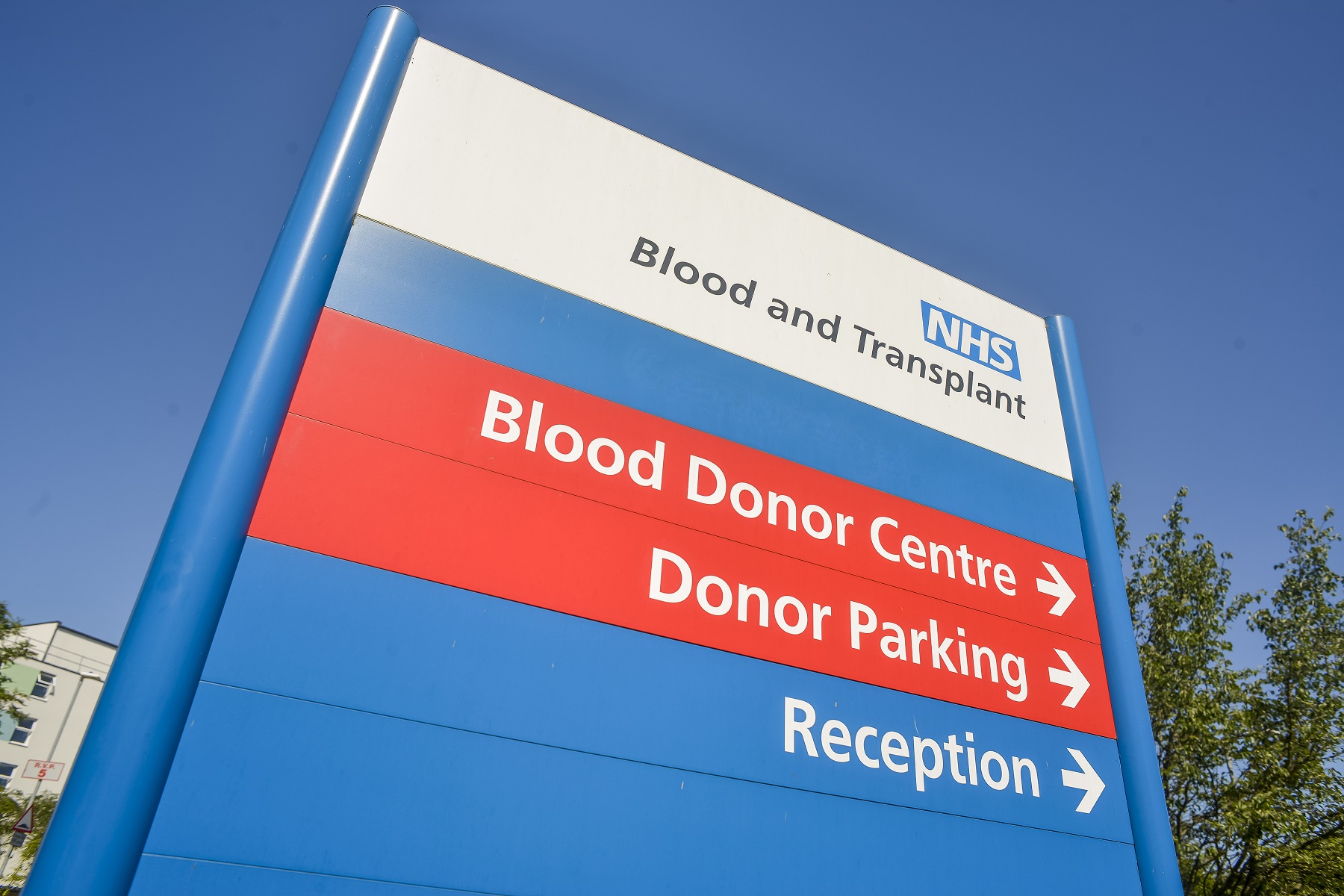Make a resolution in 2018 that changes someone else’s life
This year 131,569 people registered to give blood for the first time - will you join them in 2018 and help to save lives?
2 January 2018
NHS Blood and Transplant is encouraging people to make a New Year’s resolution that can change someone else’s life, not just their own. In just one hour you could make a quick and easy resolution which saves lives.

NHS Blood and Transplant needs around 200,000 new donors every year to maintain the supply for life-saving blood donations.
Donors are needed from all blood groups and communities but there is a particular need for more people from black and Asian communities to donate to help provide the right mix of blood.
Across England 900,000 people gave blood in 2017.
Mike Stredder, Director of Blood Donation at NHS Blood and Transplant, said: “It’s New Year and like many of us, you may be thinking about the year ahead and some changes you’d like to make to your life. Perhaps you want to cut down on drinking, eat more healthily or are considering joining a gym?
“This year we are asking people to focus on giving and to register to give blood. It’s easy to sign up and book your first appointment online or via our mobile phone app.
“By donating blood you will save or improve the lives of up to three people. Do something amazing in 2018. Give blood.”
In general, as long as you are fit and healthy, weigh over 7 stone 12 lbs (50kg) and are aged between 17 and 66 (up to 70 if you have given blood before) you should be able to give blood. If you are over 70, you need to have given blood in the last two years to continue donating.
If you are already a blood donor you could consider becoming a platelet donor. NHS Blood and Transplant particularly needs donors with the A negative blood group as they can help any patient, regardless of blood type. One platelet donation can help us to three adults or 12 babies or children.
It’s quick and easy to register to become a blood donor. Visit www.blood.co.uk or download the app by searching ‘NHSGiveBlood’ in the app store. You can also call the Donor Line on 0300 123 23 23 or visit www.blood.co.uk
You can donate platelets at your nearest donor centre. If you already give blood, ask about platelet donation at your next appointment.
Ends
- For additional information please contact the NHSBT Press Office on 01923 367600 or email pressoffice@nhsbt.nhs.uk
- For urgent out of hours enquiries please call 0117 969 2444
Notes to editors
- NHS Blood and Transplant is a joint England and Wales Special Health Authority. We are responsible for ensuring a safe and efficient supply of blood and associated services to the NHS in England. We are also the organ donation organisation for the UK and are responsible for matching and allocating donated organs.
- We are an essential part of the NHS and take pride in saving and improving lives by making the most of every voluntary donation, from blood and organs to tissues and stem cells.
- Our work would not be possible without our donors - ordinary people doing extraordinary things by saving and improving the lives of others.
- To find out more visit: www.nhsbt.nhs.uk
- Blood donors can search for sessions, book appointments, change/cancel their appointments and change their contact details in real time at blood.co.uk
- There are apps available for Android, Windows and Apple Smartphone and tablet devices which enable donors to search for sessions based on their location and book and manage appointments.
- Our donor line - 0300 123 23 23 - is available 24 hours a day, seven days a week with all calls charged at the standard local rate, even from mobile phones
- NHS Blood and Transplant needs to collect 1.5 million units of blood each year to meet the needs of patients across England. It’s important that we collect the right amount of each blood group at the right time to meet patient needs.
- There are four main blood groups – O, A, B and AB. Group O is the most common and therefore the most in demand. A regular supply of blood is vital – red cells last 35 days and platelets only 7 days
- The overall demand for blood is falling by 3-4% per year. This is due to improvements in clinical practice and is a trend that is being seen around the world. The drop in demand for blood is also thanks to our work with hospitals to ensure blood is used appropriately for patients.
- We need nearly 200,000 new blood donors each year to replace those who no longer donate for reasons such as ill health, pregnancy or foreign travel and to ensure we have the right mix of blood groups to match patient needs in the future
- Some blood groups, such as O negative (the universal blood group), A negative and B negative are particularly vulnerable to shortfalls. So we want people with those blood groups to donate as regularly as they can. We also need more black African, black Caribbean, mixed race and South Asian people to become blood donors to reflect the ethnic diversity of patients
- Female whole blood donors can give blood every 16 weeks, while male blood donors must wait 12 weeks between donations. Platelets can be donated every 2 weeks.
Register to donate
Become a blood donor
Book an appointment
Find out where you can donate